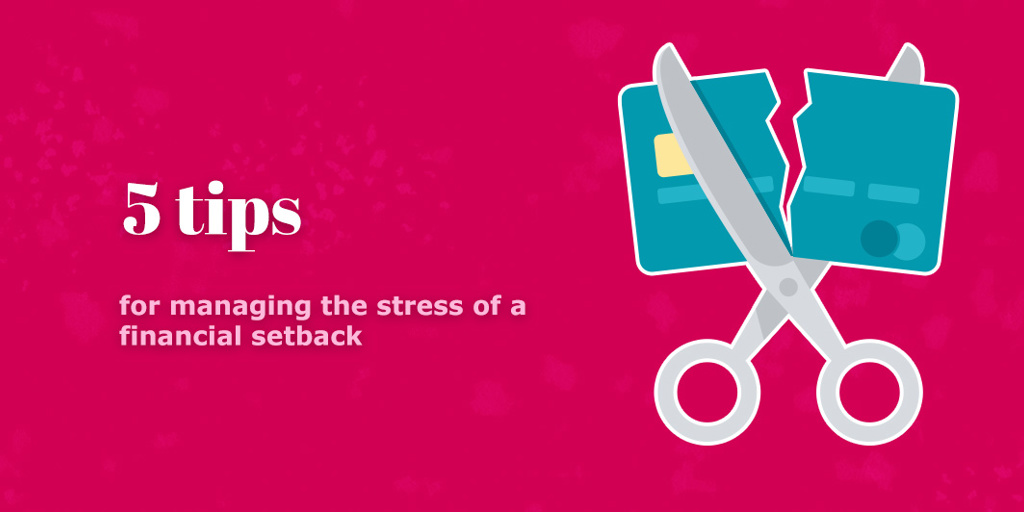


Five tips for managing the stress of a financial setback
Life is full of surprises. From an expensive car repair to an unexpected medical bill, many people have been, or will be, blindsided by a financial emergency.
And financial strain affects you beyond your pocketbook. Worrying about money can throw off your emotional equilibrium, impede your ability to think rationally and even wreak havoc on your body. But there are ways to manage the charge of emotions that come with a financial blow. Here are five things you can do to cope with the stress:
1) Eat healthily
Well-nourished bodies are more equipped to cope with anxiety, but when we’re angry or stressed, we tend to get out of control and crave unhealthy treats. Emotional eating, however, quickly becomes a habit, so prepare in advance and keep healthy snacks with you wherever you go. Try small packets of nuts, trail mix, apples or bananas. Having healthy options will help you bypass high-calorie comfort food.
2) Get moving
Exercise benefits our minds as much as our bodies. It releases endorphins, which boost our energy and increase our feelings of overall well-being. It can also serve as a distraction from daily worries. Better yet, it makes us less susceptible to stress. Try a 20-minute walk, a game of basketball or a yoga class.
3) Get enough sleep
It’s a catch-22. Getting a good night’s sleep arms us with the ability to tackle stress more readily, yet stress takes a toll on the amount of sleep we get. When we’re tired, we’re less patient, more easily agitated and more prone to experiencing anxiety. Most adults need seven to nine hours of sleep per night. Practicing good sleep habits, along with stress-lowering tactics, can help improve quality of life.
4) Meditate
Meditation can help us remain centered in the face of stress and can even help us regain a sense of peace when feeling off-balance. It’s an excellent stress-reduction technique that can lower heart rate and blood pressure and relax muscles. With practice, we should find ourselves reacting to stress with less intensity and more easily remaining calm.
5) Have a good attitude
We can’t control our circumstances, but we do have a choice in how we face them. And perception is everything. We can choose whether we see each stressful situation as a threat or as a challenge. Viewing something as a challenge helps us positively organize our resources and bring our A game to the situation more readily. Conversely, viewing the same situation as a threat can cause us to feel overwhelmed and shut down, so we should take charge of our thoughts and meet our challenges head on.
Teresa Kable is F&M Trust’s HR Generalist, a certified wellness and health coach and a certified worksite wellness specialist.
Recent Articles
Join our e-newsletter
Sign up for our e-newsletter to get new content each month.






















